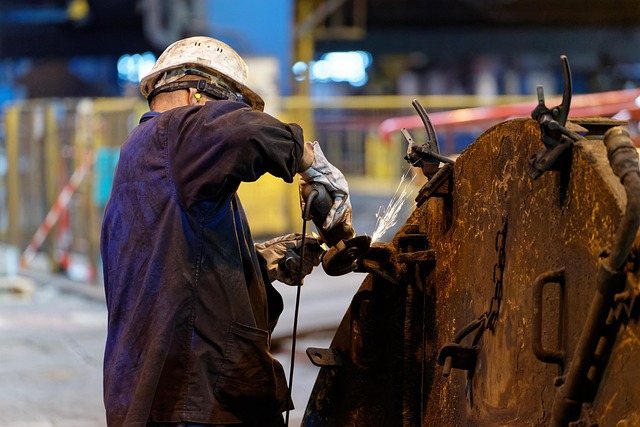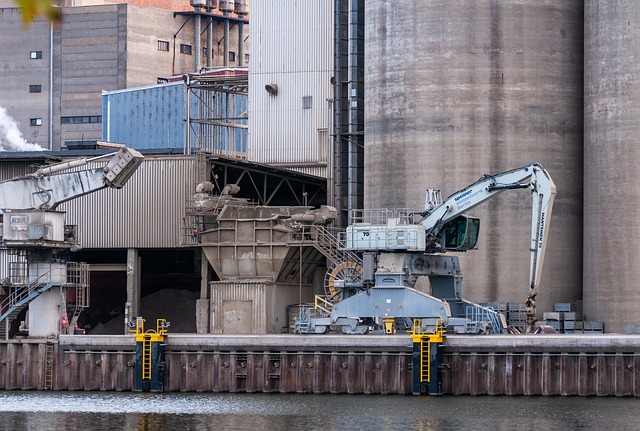In Denver's dynamic industrial sector, accessing specialized industrial property loans fosters growth. Lenders assess property potential, market value, and borrower financial health for loans catering to improvements, renovations, or construction. Options include traditional banking, private lenders, and hard money loans, each with unique advantages in the competitive local market. Key factors for lenders are location, property condition, borrower creditworthiness, and loan purpose. A thorough application process involves gathering financial documents, property evaluations, and demonstrating business potential to secure industrial property loan denver.
“Exploring financing options for your industrial property in Denver? This comprehensive guide breaks down everything you need to know about securing a loan. From understanding the unique dynamics of industrial real estate loans in Denver, to navigating diverse financing types and demystifying the approval process, we provide insights to help investors and businesses make informed decisions. Uncover key factors lenders consider and prepare for a smooth journey towards acquiring or expanding your industrial property portfolio.”
- Understanding Industrial Property Loans in Denver
- Types of Financing Options for Industrial Real Estate
- Key Factors Lenders Consider for Industrial Property Loans
- Navigating the Application and Approval Process
Understanding Industrial Property Loans in Denver

In the vibrant industrial landscape of Denver, understanding industrial property loans is paramount for businesses aiming to thrive in this competitive market. These specialized loans are designed to cater to the unique financing needs of industrial real estate, enabling entrepreneurs and established companies alike to acquire or expand their manufacturing, warehousing, or distribution facilities. The process involves a comprehensive assessment of the property’s potential, market value, and the borrower’s financial health, ensuring a mutually beneficial arrangement.
Denver’s thriving economy, characterized by bustling industrial sectors, makes accessing industrial property loans both accessible and competitive. Lenders recognize the strategic importance of these properties, which often serve as the backbone of local economies. As a result, they offer tailored financing options with flexible terms, allowing businesses to secure funding for major improvements, renovations, or even new construction, thereby fostering continuous growth and development within the region’s industrial tapestry.
Types of Financing Options for Industrial Real Estate

Industrial property owners in Denver have a variety of financing options available, tailored to meet the specific needs of this sector. One common approach is traditional lending through banks or credit unions, offering fixed-rate loans with predictable monthly payments. These loans are ideal for long-term stability and can be used for purchasing new properties or refinancing existing ones.
Alternative financing methods include private money lenders and hard money loans, which are often faster and more flexible. Hard money loans are particularly popular in Denver’s competitive real estate market due to their ability to fund projects quickly, making them suitable for renovations or short-term investments. Additionally, government-backed programs like the USDA (United States Department of Agriculture) loan program provide financing options for industrial properties in rural areas, promoting economic development across diverse regions.
Key Factors Lenders Consider for Industrial Property Loans

When considering an industrial property loan in Denver, lenders evaluate several critical factors to ensure a low-risk investment. The location plays a significant role; proximity to transportation hubs, major highways, and urban centers enhances access and logistics for businesses operating within the facility. Lenders also scrutinize the property’s age, condition, and potential for future development or expansion as these factors impact long-term viability.
Additionally, the financial health of the borrower is a cornerstone consideration. Lenders assess credit history, current debt obligations, and the borrower’s ability to repay the loan through stable cash flow projections. The purpose of the loan, whether acquisition, construction, or refinancing, guides lending decisions as lenders evaluate the project’s feasibility and potential return on investment.
Navigating the Application and Approval Process

Navigating the application and approval process for an industrial property loan in Denver can seem daunting, but with a structured approach, it becomes more manageable. Borrowers should start by gathering all necessary financial documents, including tax returns, bank statements, and business plans. This initial step is crucial as it demonstrates to lenders the stability and potential of the industrial property and the borrower’s ability to repay the loan.
Lenders in Denver often require a detailed assessment of the property, its market value, and comparable sales in the area. Borrowers should be prepared to answer questions about their business operations and the purpose of the loan. A well-prepared application, accompanied by a solid understanding of the borrower’s financial standing and the property’s value, increases the chances of a successful approval for an industrial property loan in Denver.
Financing an industrial property in Denver offers a robust opportunity for business growth. By understanding the various financing options, key factors lenders consider, and navigating the application process efficiently, prospective buyers can secure the perfect industrial space to fuel their operations. An industrial property loan in Denver is not just about acquiring real estate; it’s an investment in a company’s future, enabling it to thrive in a competitive market.
